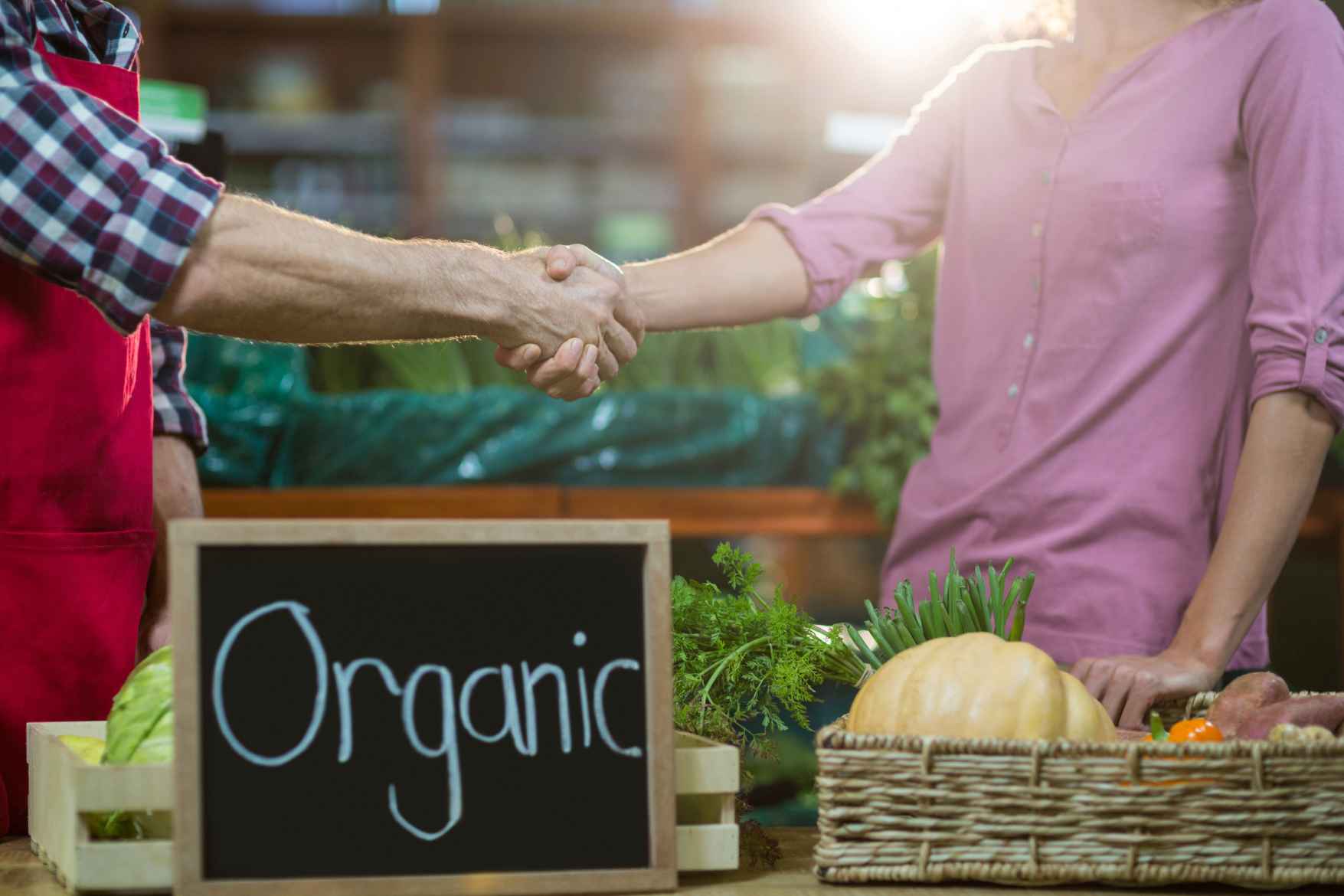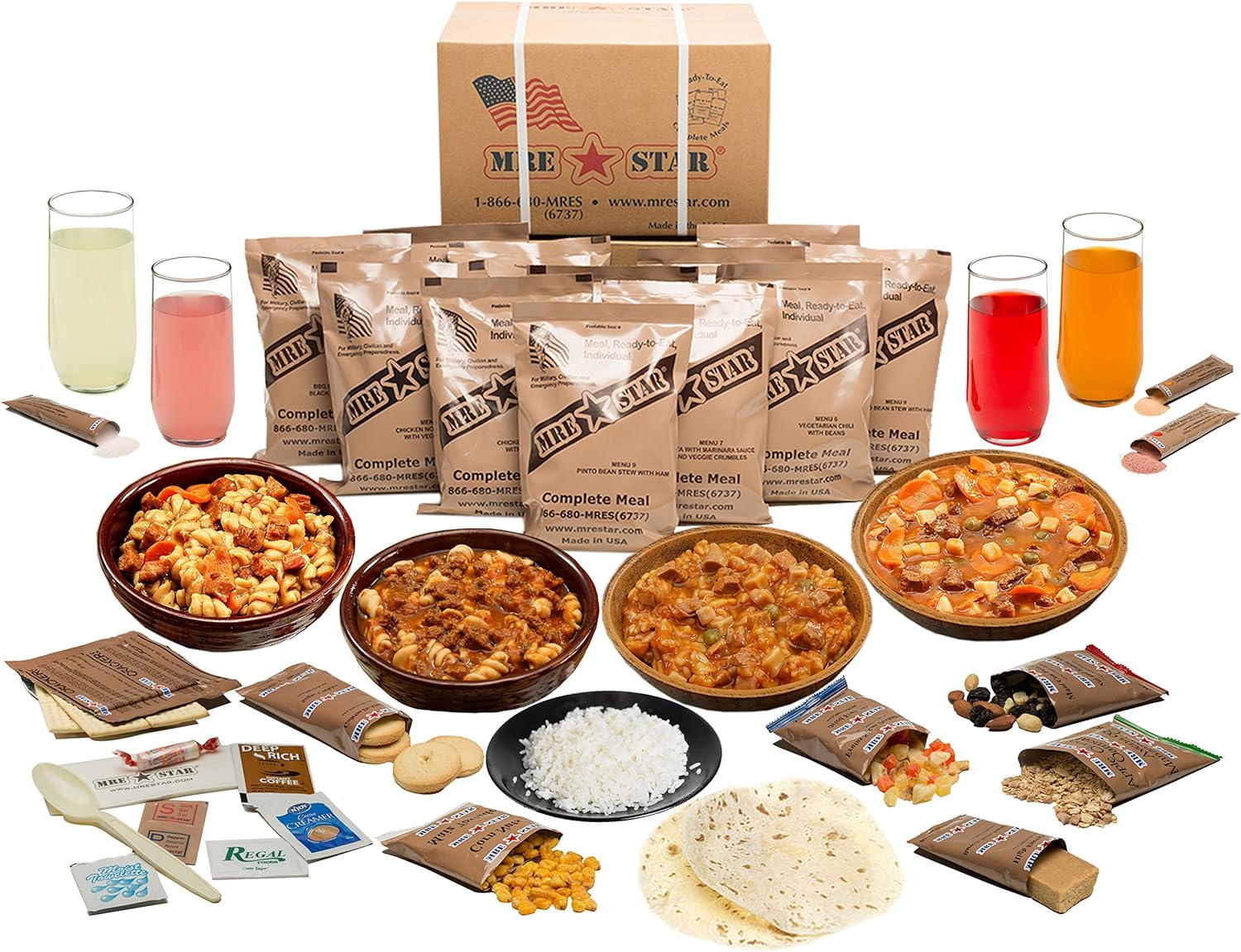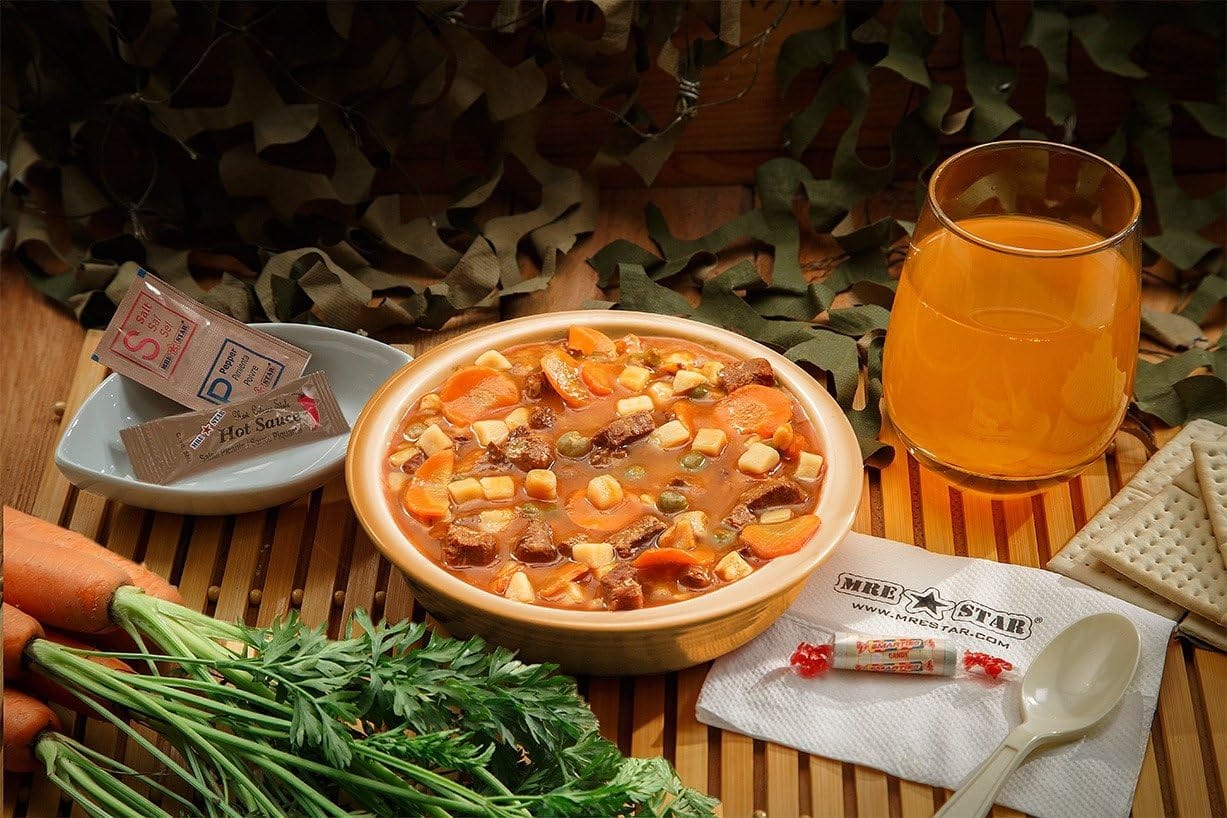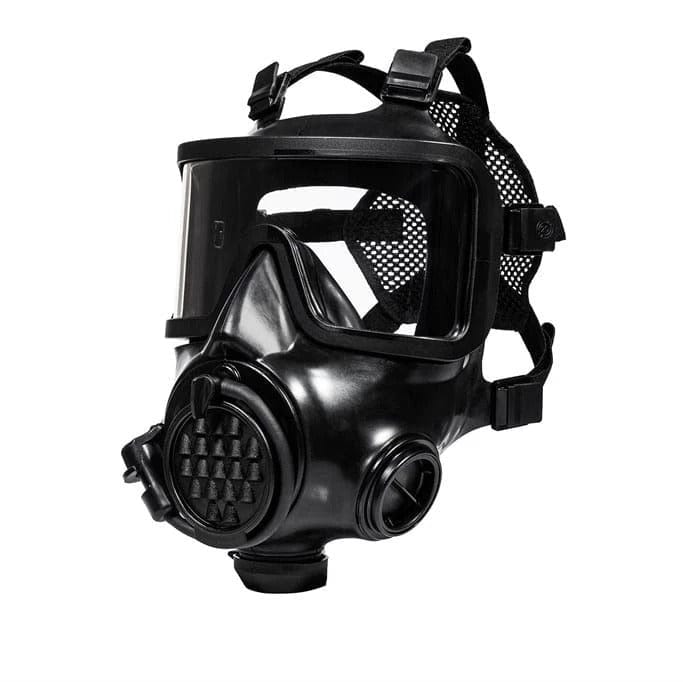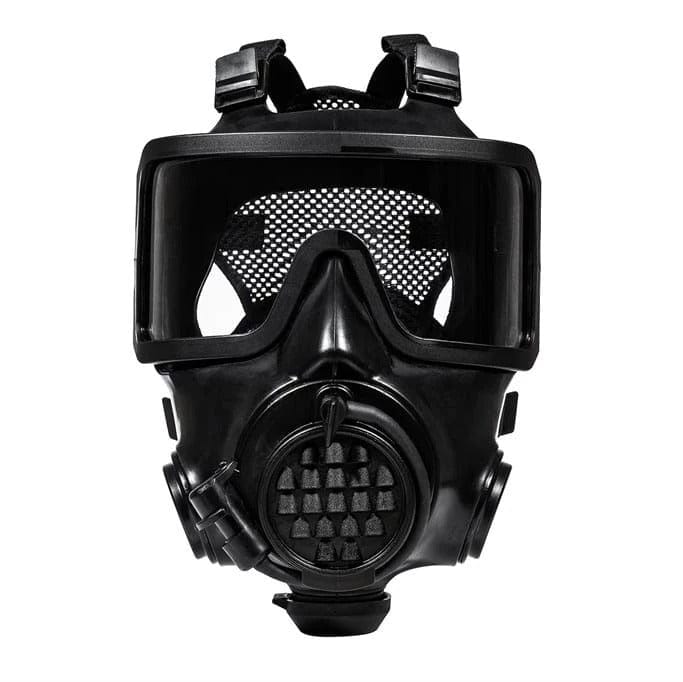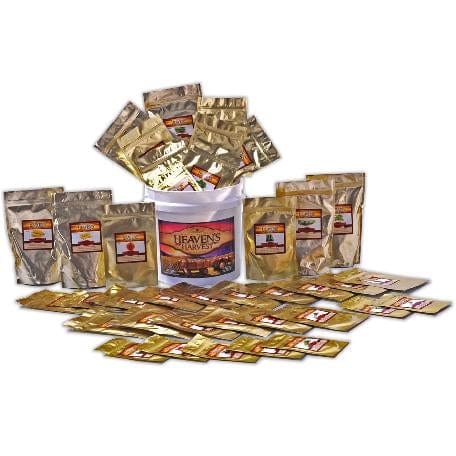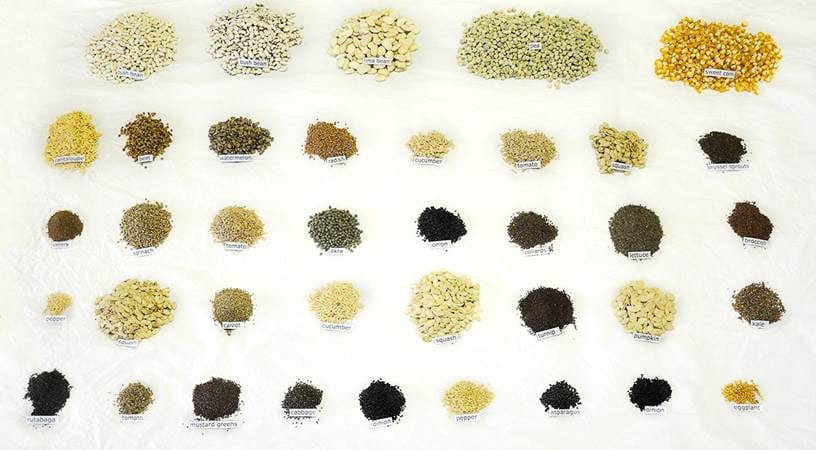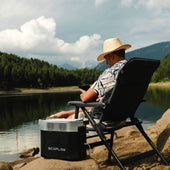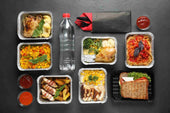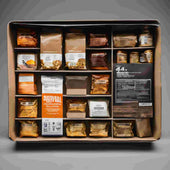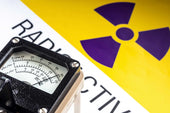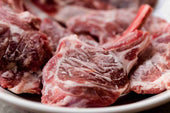Becoming an Organic Prepper 101

The world is full of unknowns. It is prone to natural disasters, economic downturns, and disruptions in the supply chain.
In times like that, the least you would care about is finding where your next meal will come from. That is why preparation counts.
It should not just be food set aside, however. It should be the correct type of food—clean, nutritious, and without chemicals. This brings in organic prepping.
Organic preparedness is prematurely saving healthy, non-genetically modified, pesticide-free foods for emergencies.
Emergency food is often merely packaged with preservatives, artificial ingredients, and low-quality fillers. Of course, it lasts a long time, but what happens when it hurts your body?
Actual preparedness isn't just about survival; it's about maintaining one's health over the long term.
This is very important, especially when caring for elderly relatives. Many seniors have sensitive stomachs or specific dietary needs and do not always tolerate processed food well.
By preparing with organic whole foods, we ensure that, even in emergencies, our loved ones get the nutrients they need without all the chemicals we can do without.
But it is far more than having a food room. It's about being in control of self-sufficiency.
The sense of growing one's organic vegetables, having knowledge of food storage and proper preservation, and making smart choices for long-term outcomes, really, honestly, will give you some absolute security: knowing that whenever something happens, it be a storm, inflation, or a breakdown of the supply chain-you're not counting on those stores to deliver.
Organic prepping gives you a sense of security. It helps you ensure that you are not only prepping for emergencies but also in a healthy manner that benefits your well-being and nature. At uncertain times, proper security derives from actual food.
Why Choose Organic Prepping?
Health Benefits: Choose Clean, Nutritious Food
While one must undoubtedly stock up on all sorts of prepared food in emergencies, the actual organic prepper thinks not only about ready-to-eat items but also nutritionally sound, clean, and healthy foodstuffs.
Most commercial emergency food products are chock-full of preservatives, additives, and genetically engineered ingredients that may keep them on a shelf for years but don't usually promote optimal nutrition in most cases.
Organic freeze-dried vegetables, fruits, and other dried foods offer the same advantage without the health risks.
This makes a difference, especially for seniors or those with dietary sensitivities.
Artificial preservatives and pesticide residues may lead to inflammation, digestive discomfort, and more serious health risks over long periods.
Organic dried foods don't contain all this stuff, so when the situation calls for an emergency diet, freeze-dried fruits and vegetables provide non-empty calories and some real nourishment since most nutrients are retained.
Environmental Impact: Supporting a Sustainable Future
Organic prepping, beyond personal health benefits, is also a good way to protect the environment.
Conventional farming relies on synthetically produced fertilizers and pesticides, which position our soil, water, and ecosystems at risk.
These chemicals contribute to soil depletion and water pollution, which harm human and animal lives.
You are investing in regenerative agriculture: soil health, biodiversity, and reduced chemical runoff. Each time you buy organic freeze-dried foods, you do your part for the small yet significant difference.
Long-Term Sustainability: A Smarter Approach to Prepping
Prepping is often seen as an informed lifestyle decision based on anticipated hardships.
Organic food production is sustainable, allowing future generations to produce fruit, vegetables, and other staple crops without depleting the earth's resources.
Unlike processed emergency foods that use synthetic preservatives to potentially prolong their shelf life, freeze-dried vegetables, and other organic options sustainably provide long-lasting nutrition. Their shelf life is comparable to conventional emergency food but with none of the stealthy dangers of artificial chemicals.
Organic vs. Conventional Emergency Food: Taste and Quality Matter
Many customers who switch to organic prepping will notice the difference in taste and quality.
Emergency food prepared conventionally often tastes processed because of additives, while organic freeze-dried and dried foods retain the natural flavor of fresh ingredients.
If you need an easy way to prepare with health as your top priority, consider giving yourself and your loved ones the best.
Organic emergency food is a good investment today and tomorrow, too.
Best Organic Foods for Long-Term Storage

Only when you approach food storage does an organic prepper remind you that not all foods are created equal.
You prefer healthy, nutritious, and long-lasting options that can take you and your family through uncertain times.
The good news is that many organic products store well, maintain nutritional value for years, and can be pretty valuable in uncertain times.
Knowing what to stock up on and how to store it properly makes preparing easier and more effective.
Storable Organic Food Options
A well-balanced emergency food supply contains a mix of grains, protein sources, freeze-dried vegetables, and fruit to complement with vitamins and minerals. Among the best options are:
Grains like quinoa, rice, and oats are organic staples with long shelf lives.
Dry foods provide complex carbohydrates and fiber. They are easy to prepare and, with proper storage, can remain good for years.
Organic legumes-lentils, beans, and chickpeas-are a good source of plant-based proteins.
They fill your stomach, but most importantly, they provide that much-needed sustenance for energy. Properly stored, they can last as long as 10 years, making them an absolute necessity for any prepper.
The best long-term food storage products contain freeze-dried vegetables and fruits.
They are good preservers of vitamins and minerals and help to retain flavor, while their addition increases a product's shelf life. The customer commonly notes that organically prepared emergency foods are fresher than conventionally prepared foods.
Almond flour, flaxseed, hemp seed, organic nuts, seeds, and powders are nutrient-dense and contain healthy fats and protein.
However, they all have significantly shorter shelf lives. Store them in a cool, dark place with good seals to extend their life span.
Organic dairy and other alternatives, such as powdered or coconut milk powder, are suitable for cooking and nutrition.
They are not rancid like fresh dairy; shelf-stable organic dairy products are more likely to be used within a year. They can still offer all the essential nutrients.
Understanding Shelf Life & Proper Storage Methods
Healthy food isn't enough; it must also be appropriately preserved. The best techniques can keep dried foods fresh for years.
The first step should always be using the proper containers.
Some of the best food storage options, including those that protect food from pests and moisture, are Mylar bags, glass jars, and food-grade buckets.
Storage for grains, beans, and freeze-dried vegetables is also practical with Mylar bags and oxygen absorbers.
Vacuum sealing and using oxygen absorbers help remove air, which causes spoilage. This is very useful for vacuum-sealed dried vegetables and fruits.
Since microorganisms like bacteria and molds require oxygen, vacuum sealing does not give them time to grow, drastically enhancing food longevity.
Ideal storage conditions make all the difference. Food should be kept in a cool, dark, and dry place to ensure freshness. Avoid sunlight and temperature changes, as they tend to reduce shelf life.
Easy Organic Prepping
True organic preppers understand that providing the best food for themselves and their families is about survival and long-term health.
Freeze-dried and dried foods generally offer reasonable nutrition for you to fall back on, even when uncertainty looms.
Consider subscribing to organic food delivery options or investing in high-quality products that can be stored for long periods. Most companies offer freeze-dried vegetables and fruits in bulk, which can be helpful for stocking.
Being prepared today means security for the future, and it all starts with choosing healthy, organic foods that truly last.
Freeze-Dried & Non-GMO Emergency Food Storage

Quality is equal to quantity in food storage.
Indeed, freezing vegetables, fruits, and other dried foods is the best way to ensure that you have healthy food for the long haul in an emergency.
Freeze-dried foods are convenient, packed with nutrients, easy to store, and have an excellent shelf life.
What is Freeze-Dried Food, & Why is it Essential for Preppers?
Freeze-dried foods receive special treatment: moisture is removed, keeping nearly all the nutrients intact. An excellent example of a preservation method that maintains 97% of nutrients is freeze-drying.
Another big plus of freeze-dried food is that it is lighter. If you've seen or tasted freeze-dried vegetables or fruits, you'll understand they've been made light.
This makes them much better for storage and transportability than canned or fresh food. Freeze-dried foods occupy little space in the pantry or when planning a bugout.
Freeze-dried foods have a much longer shelf life compared to fresh foods. If kept properly, they can last up to 15 to 25 years before spoiling.
Therefore, you can build your reserve knowing that those foods have a reasonable chance of being good when you need them the most.
Selection of Non-GMO & Organic Freeze-Dried Foods
It is well known that not all freeze-dried products are equal. Emergency foods on the market today are often laced with GMOs, artificial additives, and preservatives.
If you're going to feed yourself good-quality food for longevity, ensure that you check the USDA Organic and Non-GMO Project Verified seal to confirm that your choice of organic foods has not been grown using synthetic pesticides in the field, not grown using genetic modification, or made using potentially poisonous chemicals.
Among the best organic freeze-dried options are:
-
Freeze-dried vegetables like carrots, spinach, and bell peppers, packed with essential vitamins
-
Dried fruits such as apples, strawberries, and bananas for natural sweetness and energy
-
Organic freeze-dried meats for protein and iron
-
Shelf-stable organic dairy like powdered milk and cheese
You'll invest in your long-term health and preparedness by carefully selecting organic and non-GMO products.
A Wise Choice: ReadyWise Organic Emergency Food Supply
ReadyWise Organic Emergency Food Supply is one of the best sources of good-quality food. The preparedness food solution gives 90 servings with ready and shelf-stable organic, non-GMO ingredients for more extended emergencies.
What makes this product stand out from most others regarding market availability?
First, it is certified organic, without pesticide residues or artificial additives.
Second, it is freeze-dried, meaning the original flavors and nutrients are preserved but impressive. Customers using ReadyWise's emergency food supply often explain that it tastes and feels better than most conventional emergency food options.
This product combines convenience, nutrition, and long-term storage advantages for organic preppers.
If you're serious about building a healthy organic emergency stockpile, offer yourself and your family this quality option.
Organic Gardening for Self-Sufficiency

Growing your food while being self-sufficient is one of the best ways to ensure good nourishment.
For an organic prepper, the homestead survival garden becomes the one source of food one can rely on when everything seems to be falling apart.
If you can get the right seeds in the ground, use some natural pest control measures, and know how to preserve some essential foods, every pedigree farm will have a long-term food solution under its nose.
Starting an Organic Survival Garden
Choose heirloom seeds and non-GMO varieties to cultivate a healthy and sustainable garden. Because these seeds cannot be genetically modified, they can be easily saved over a season.
Moreover, heirloom seeds produce fruits and vegetables that are more flavorful, more nutritious, and fresher than hybrids found in regular nurseries.
When choosing crops for your garden, it's always best to get organic, hardy, and nutrient-dense plants that are easy to grow. Some of the top survival crops include:
-
Kale – Vitamins-packed and grows well under various climates
-
Potatoes – Rich in calories, and these can easily be stored for months
-
Carrots – Good source of beta-carotene and can be stored long-term
-
Beans – Source of plant-based protein and are great for food storage
-
Tomatoes – Versatile for fresh eating, canning, and drying
Companion planting is a non-chemical technique for planting different plants together to achieve specific beneficial effects.
For example, planting basil near tomatoes enhances flavor and helps combat pests. Marigolds deter bugs, while beans contribute nitrogen to the soil, essential for leafy greens.
Organic pest control should not be mistaken for avoiding synthetics altogether. Other examples include neem oil, diatomaceous earth, and homemade sprays made with garlic chilies.
Good bugs, like ladybugs or praying mantises, could do all the split work and keep some pesky bugs at bay.
Extending Shelf Life with Organic Preservation
Once fruits and vegetables are grown and dried, the next step is preserving their harvest for future use.
Preserving organic foods will allow their tomes of harvest for consumption throughout the year and ensure some availability for emergencies with freeze-dried or shelf-stable products.
Two great methods of preserving vegetables are canning and fermenting.
Canning involves keeping sealed food in jars or containers and sterilizing it with heat to kill bacteria. The food is usually suitable for two years.
Pickling and fermenting in a natural salt brine preserve vegetables and add the health benefits of probiotics to one's diet.
Another excellent method is dehydrating and storing herbs and fruits.
Removing water causes dehydration, which prevents spoilage and makes dried foods much lighter to store and transport.
Freeze-drying more completely retains nutrients, while other ways of preserving, such as air-drying or utilizing a dehydrator, can still result in edible, long-term, nutritious food.
All one needs to know is how to make organic, healthy survival foods at home, such as organic food, jerky fruit leathers, and nutty granola, in almost an unending supply of wholesome and nutritious food.
Advanced Action in Organic Preparation
The easiest way to ensure you are in charge of your food supply is through an organic survival garden.
Grow dried vegetables for food storage, ferment tomatoes to make homemade sauces, and do all this to achieve true self-sufficiency.
If you want organic freeze-dried products in your homegrown food, consider subscribing to trusted brands specializing in freeze-dried vegetables, dried foods, and other long-term food storage solutions.
Final Thoughts & Encouragement
Prepping is not just a way to stock up for a rainy day; it's a lifestyle.
An organic prepper knows that preparedness is not a one-time event but a continuous process of health, sustainability, and peace of mind.
Organic food storage, freeze-dried vegetables, dried foods, and self-sufficiency all contribute to the conscious choice of nourishing one's body while protecting the planet.
If you are new to this game, don't be overwhelmed. You don't need to store a year's worth of anything overnight.
Take small, healthy steps: Stock up on freeze-dried essentials, grow some easy-to-manage veggies, and gradually increase your knowledge.
And over time, your confidence will increase, and prepping will feel like second nature.
The world may be unpredictable, but the better prepared you are today, the more secure your future will be. High-quality food storage is much easier when you invest in it.
Take control of your future, one meal at a time.
Start your organic prepping journey today—because absolute security begins with what's on your plate.

